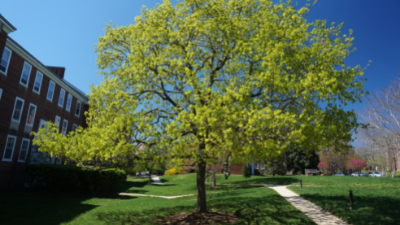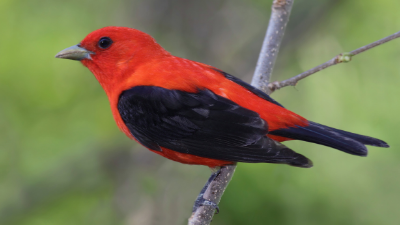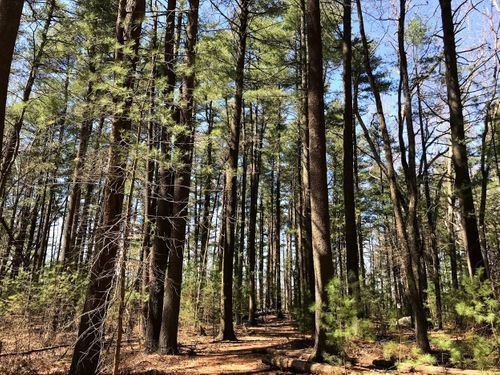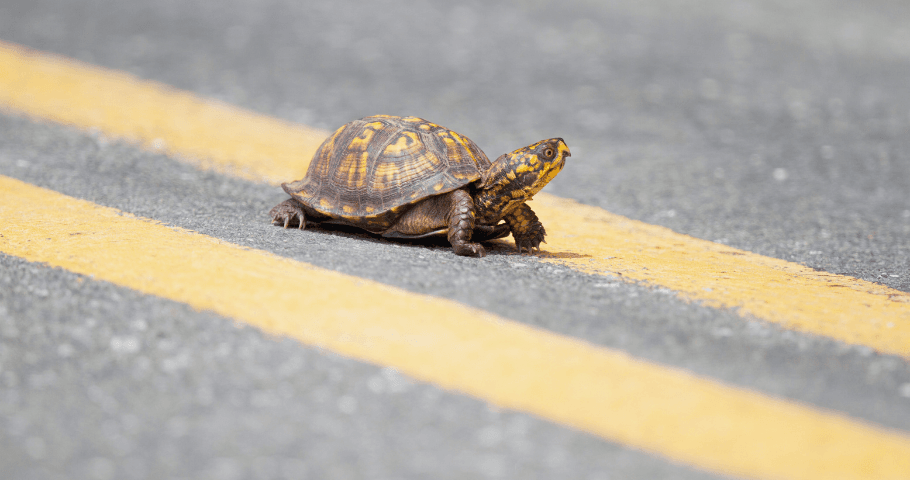
May 2021
The monthly Audubon Eagle Eye Advocacy Updates will provide you with simple actions you can take to help foster a cleaner, healthier planet along with local and national environmental news. Advocacy to protect birds and wildlife is a top Audubon priority and this work goes beyond testifying on their behalf on Smith Hill. Year round, we are working with our community partners and Rhode Island leaders to ensure the environment is a priority. These updates will keep you informed and ready to take action when the legislative session is upon us. As the newsletter continues, we are very interested in your suggestions and questions. Please send them to Audubon Senior Director of Policy Meg Kerr at mkerr@asri.org.
Sign up to get the Audubon Eagle Eye Advocacy Update in your inbox!
- The net cooling effect of a young, healthy tree is equivalent to ten room-size air conditioners operating 20 hours a day.
- If you plant a tree today on the west side of your home, in five years your energy bill should be 3% less. In 15 years, the savings will be nearly 12%.
- Having large trees in a yard along the street increases a home’s value from 3 percent to 15 percent.
- Healthy, mature trees add an average of 10% to a property’s value.
The Rhode Island Department of Environmental Management Forest Environment Program supports tree plantings, especially in more urban areas. Learn More
And the Rhode Island Tree Council has lots of information on their website including workshops and resources. My favorite is the champion tree list – check it out then go and visit some of the magnificent trees in our little state!
Good News on the Migratory Bird Treaty Act!
At the Rhode Island State House
Audubon is still celebrating our first legislative win in many years - the passage and signing of Act On Climate. Governor McKee signed the bill at a ceremony in Newport in April and the environmental community hosted a celebration in May. And now the real work begins – making sure that the bill is implemented and that we encourage and support our state leaders so we meet the climate targets in the bill. In the short term, Audubon and other advocates are reaching out to state leaders to hear their plans and priorities for the implementation of the act. We will document what we learn and then work to hold everyone accountable to this important law. Look for updates on progress in the months ahead.
Regulating Neonicotinoid Pesticides
House: H5641 - Sponsored by Representatives Kislak, Bennett, Kazarian, Speakman, Cortvriend, Carson, and Donovan
Senate: S 702 - Sponsored by Senator Miller
The campaign features research and a report written by Audubon intern Samantha Kronyak.
Here is the website for the City’s campaign: sustainpvd.com/pesticidefree
This work frames the bill we have been working on with the Department of Environmental Management to regulate neonicotinoid pesticides. We have had hearings on the bills with excellent testimony both in support and opposition. We will continue to work with the sponsors on amendments that will allow the bills to move this session.
All testimony submitted to the House Committee on Environment and Natural Resources is posted online. You can read the testimony in support and opposition here (you need to scroll through the pages to find H 5641). Audubon’s testimony is here.
Action you can take: Let your senator and representative know that you support this bill. You can also send an email to members of the House Environment Committee and Senate Committee on Environment & Agriculture.
Action you can take: Let your senator and representative know that you support this bill. You can also send an email to members of the House Environment Committee and Senate Committee on Environment & Agriculture.
Solar Siting: Closing the 10 MW loophole
Senate: S 474 - Sponsored by Senators DiMario, Euer, Ciccone, Valverde, DiPalma, Seveney, Calkin, Bell, Kallman, and Anderson
House: H 6169 - Sponsored by Representatives Speakman, Ruggiero, Cortvriend, Carson, Donovan, Tanzi, Ajello, Morales, and Potter
While current state law limits the size of solar arrays to 10 MW (about 40 – 50 acres), developers locate projects on adjacent lots and build projects that exceed this limit. This ecoRI article describes a 38.4 MW project under development in North Smithfield. And this article shows a map of solar development in Hopkinton including projects that exceed the 10 MW threshold.
This bill would eliminate the ability to co-locate projects in greenfield sites, but would enable developers to create these large projects in preferred, already developed, areas.
The bills have been heard in committee.
Action you can take: Let your senator and representative know that you support this bill. You can also send an email to members of the House Environment Committee and Senate Committee on Environment & Agriculture.
Every year over 12,000 students participate in Audubon environmental education programs. Climate change will have a significant impact on the lives of these youth as Rhode Island’s cities, towns, forests, and coastal areas all struggle with ecosystem change. However, there is currently no requirement in Rhode Island for climate education.
The Climate Literacy Act (S 464 / H 5625) would require the RI Department of Education to:
- Develop a set of environmental, climate, and sustainability principles and concepts to be infused into the learning standards in science and social studies.
- Identify and disseminate lessons, activities, materials, and professional development related to climate.
- Establish an award program for high-performing schools and exemplary teachers.
It is critical that the decisions of our future leaders are rooted in science and fact-based analysis. Rhode Island faces difficult choices ahead regarding the impacts of climate change, but there will also be opportunities for innovation. It is vital that our future leaders are educated and prepared.
Action you can take: Please contact your state legislators and Governor McKee today and ask them to support the Climate Literacy Act. Learn More
We are seeing other important legislation move – we hope towards passage!
- The plastic bag ban passed on the Senate floor on May 4. The companion bill still needs to move out of committee in the House. (S 37, H 5358)
- The plastic straw ban also passed on the Senate floor on May 4. The companion bill still needs to move out of committee in the House. (S 155, H 5131)
- The ban on the intentional release of balloons passed on the House floor in May. And it still needs to move in the Senate. (S 38, H 5376)






















